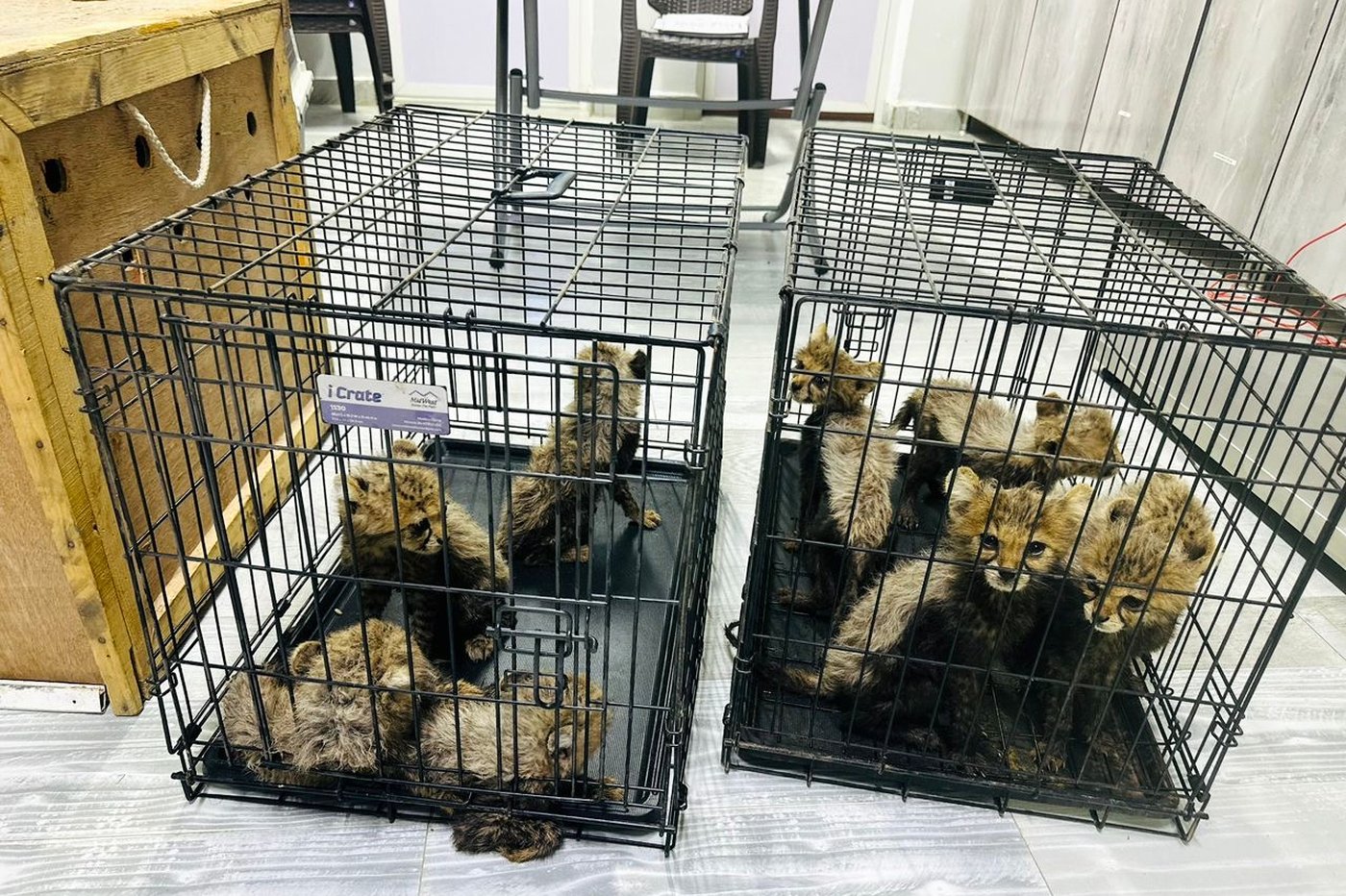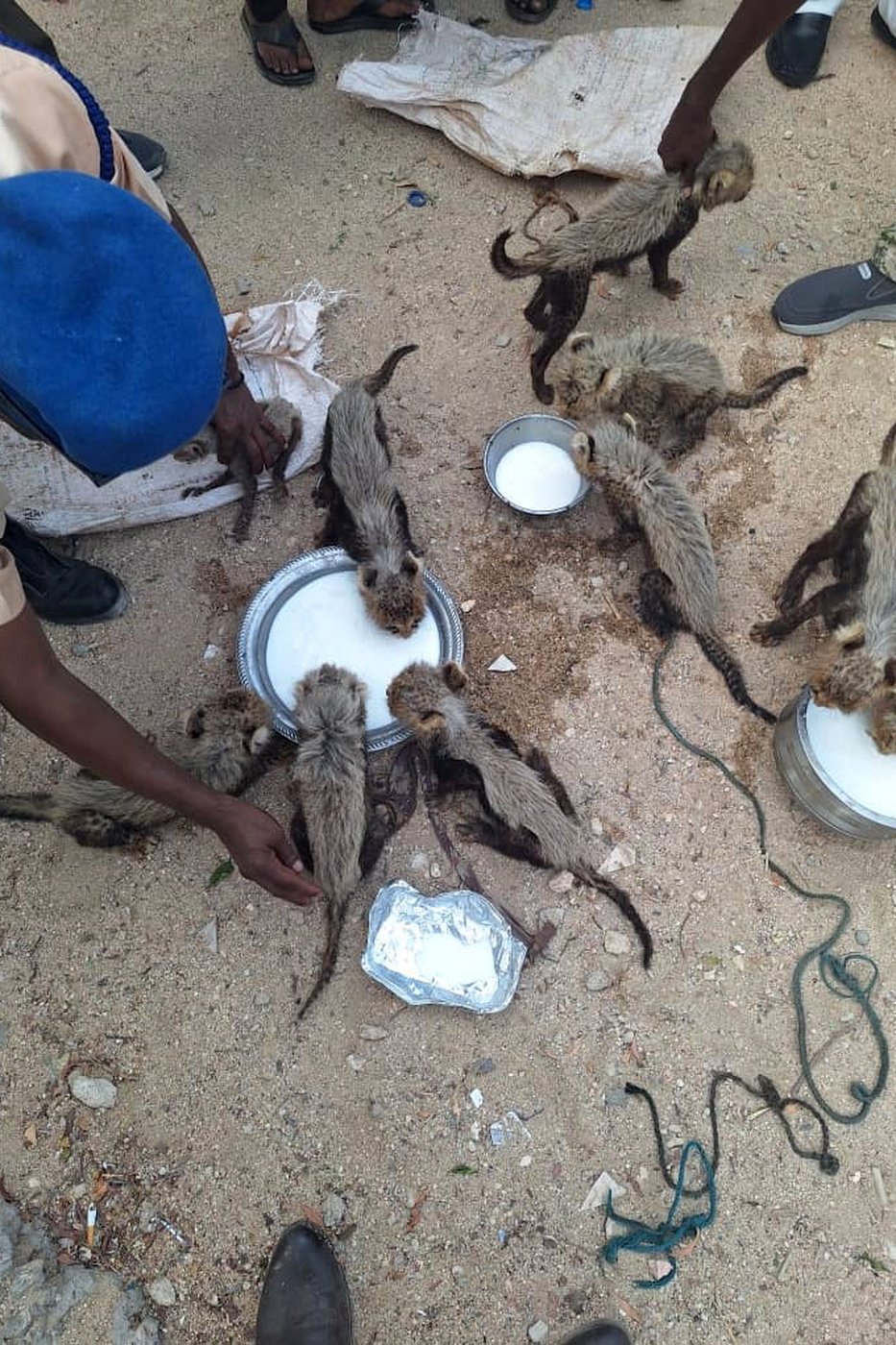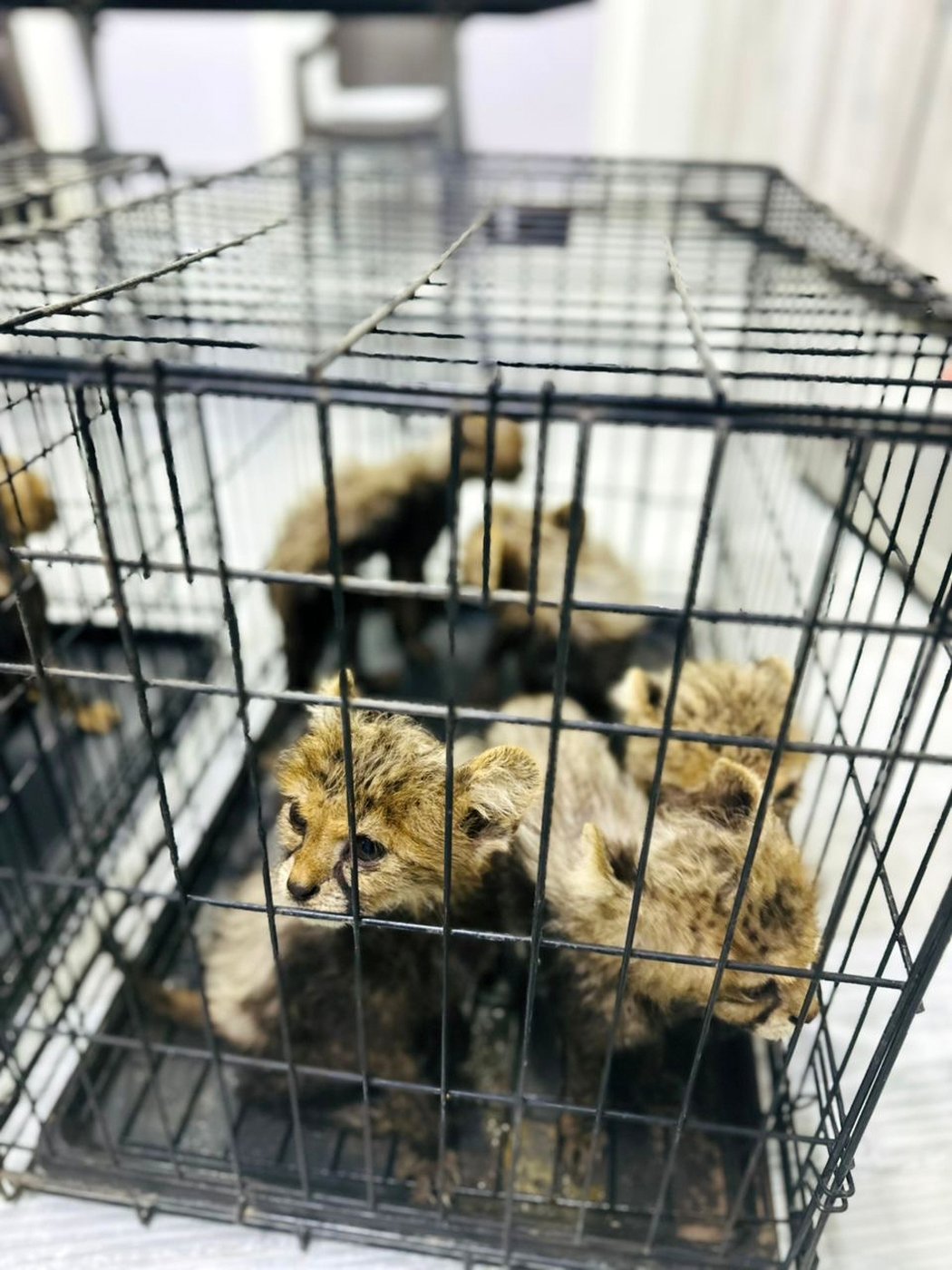Elevate your local knowledge
Sign up for the iNFOnews newsletter today!

NAIROBI, Kenya (AP) — Eleven cheetah cubs were rescued from illegal trade in Somaliland in what a conservationist described on Thursday as “one of the largest confiscations of the species.”
The cubs were packed in bags that resembled sacks of potatoes and were being transported in a small dhow off the Somaliland coast at Berbera when the local coast guard intercepted them on Sunday.
Two locals and three Yemenis were arrested during the rescue operation, and the cheetahs were taken to a rescue center owned by the Cheetah Conservation Fund, or CCF.
Somaliland, a breakaway region of Somalia, is a major transit hub for the illegal wildlife trade. Hundreds of cheetahs and leopards from the Horn of Africa have been transported to Gulf countries through the Gulf of Aden.
Possession of wildlife is illegal in Somaliland, and police often crack down on suspected traders.
In August, local authorities arrested two people and rescued another 10 cheetah cubs that were destined for the Gulf.
CCF founder Laurie Marker said the rescued cubs were “very malnourished” and were being reintroduced to food slowly, starting with fluids.
“The cubs were in very poor condition,” she said. “One died only a few hours after arriving at CCF’s centre, although in ICU and critical care administered. Another died the next day under same conditions. Two others are in critical care, one of which is in very bad state. The other seven are responding.”
Marker, whose center now has 128 rescued cheetahs, said the illegal trade in cheetahs was driving the species into extinction.
“Cheetahs are not pets. They are wild animals, top predators and play an important role in the ecosystem,” she said. “Wildlife belongs in the wild. Please help us stop the illegal wildlife pet trade in cheetahs and other wildlife species being illegally traded around the world.”
The rescue of cubs is “critical” in the fight to save the cheetah from extinction, Marker said, adding: “With fewer than 7,000 cheetahs left in the wild, we can’t afford to lose a single one to the illegal pet trade.”
Conservationists in the Horn of Africa have previously expressed concern over the rise in demand for exotic pets in Gulf countries and the resulting illegal trade affecting ecosystems in Horn of Africa nations.


Want to share your thoughts, add context, or connect with others in your community?
You must be logged in to post a comment.